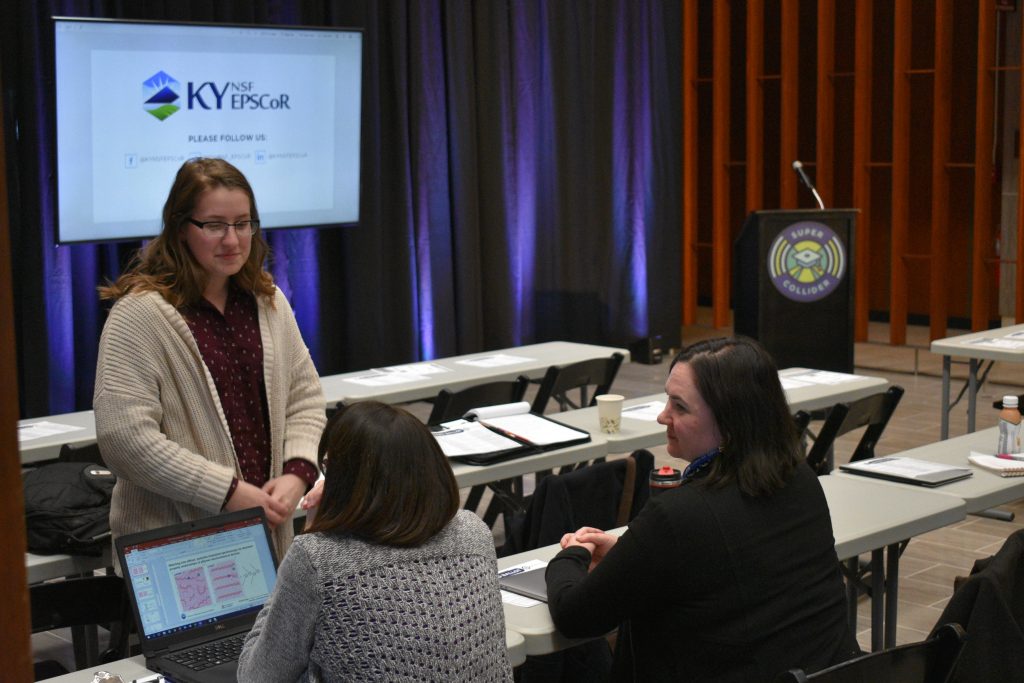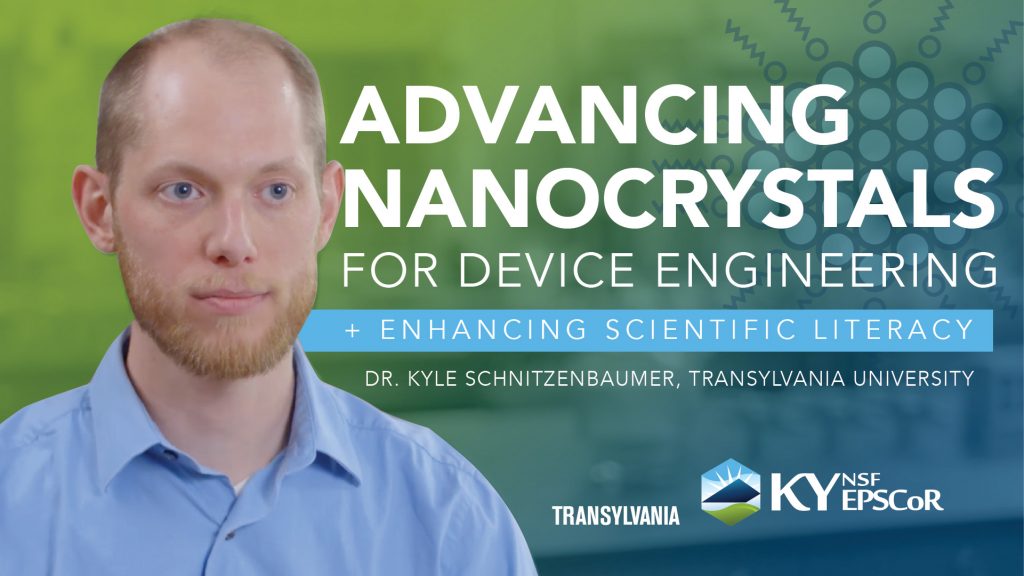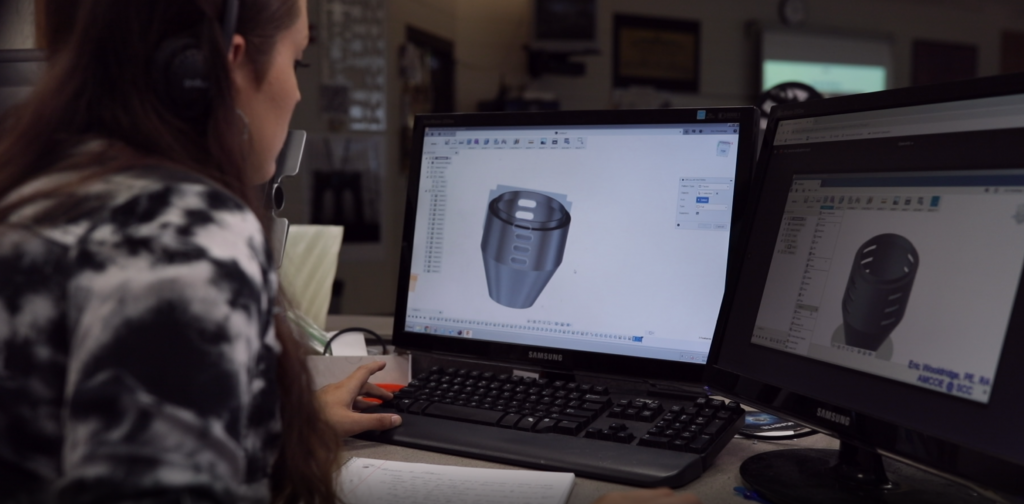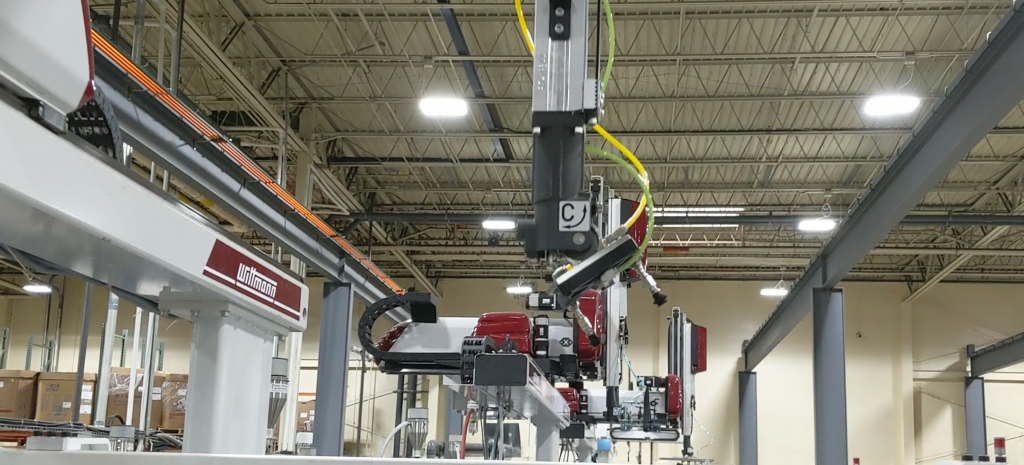A Super Collider is a physics term of a collider in which superconducting magnets are used to accelerate particles to energies of millions of megavolts.
Like its namesake, KY NSF EPSCoR’s SuperCollider promotes accelerating of ideas, the attraction of researchers from across the state, thus producing the megavolts necessary to advance manufacturing in Kentucky.
On February 28th, 80 registrants from across eight institutions attended SuperCollider 2020, a networking event where guests learn, share ideas, and enhance collaboration for a common purpose. Over 30 of the attendees were graduate students, 27 of which participated in a poster session at the end of the event. Victoria Russ, Morehead State University, Andres Sanlinas-Hernandez, Morehead State University, and Olalekan Olowo, University of Louisville, all earned marks of distinction.
Held at the Spindletop Administration Building, part of UK’s Center for Applied Energy Research, the event was the first Super Collider under the new $24 million collaborative research project – The Kentucky Advanced Partnership for Enhanced Robotics and Structures.
“Eighty registrants is excellent participation for the first year of a project,” says Jeff Mossey, KY NSF EPSCoR program administrator, “this venue provides an opportunity to interact and share ideas with people outside of your own institution and research area.”
Each co-Investigator spoke at the event – Dr. Seth Debolt, University of Kentucky, Dr. Dan Popa, University of Louisville, Dr. John Anthony, University of Kentucky, and Dr. Czar Crofcheck, University of Kentucky – presenting on their particular pillar of research, or in Dr. Crofcheck’s case, workforce management, education, and outreach.
Says Dr. Anthony, “I’m really excited about Super Collider because it really does get the team – both the PIs and the students – together to see the overall picture.”
That overall picture – to advance manufacturing in Kentucky – was hopefully supercharged by such a great event. KY NSF EPSCoR thanks all who participated, planned, and supported Super Collider 2020.




